
Pongara National Park: Gabon's Untouched Wilderness
Nestled along the Atlantic coastline, Pongara National Park is a stunning blend of lush forests, savannahs, and mangroves. This diverse landscape offers a unique experience for nature lovers, with its rich biodiversity and serene environment. The park is home to a variety of wildlife, including elephants, buffaloes, and the critically endangered leatherback turtles that come ashore to nest. Visitors can explore the park's extensive network of trails, which provide an excellent opportunity to discover the flora and fauna up close. Birdwatchers will be delighted by the numerous species that inhabit the park, making it a paradise for ornithologists. For those interested in marine life, the coastal areas offer a chance to see dolphins and whales in their natural habitat. Pongara National Park is not just about wildlife; it also holds cultural significance. The local communities around the park have a deep connection with the land and can offer insights into traditional practices and local folklore. The park's tranquil beaches provide a perfect setting for relaxation, making it an ideal destination for both adventure and leisure.
Local tips in Pongara National Park
- Visit between November and February to witness the nesting of leatherback turtles.
- Hire a local guide for a more informative and immersive experience.
- Pack insect repellent and sunscreen for protection against bugs and sun.
- Respect local customs and always seek permission before taking photos of people.
- Bring binoculars for better wildlife viewing, especially for birdwatching.
- Stay hydrated and carry enough water when hiking the trails.
- Ensure you have proper permits for any specific activities you plan to do.
Pongara National Park: Gabon's Untouched Wilderness
Nestled along the Atlantic coastline, Pongara National Park is a stunning blend of lush forests, savannahs, and mangroves. This diverse landscape offers a unique experience for nature lovers, with its rich biodiversity and serene environment. The park is home to a variety of wildlife, including elephants, buffaloes, and the critically endangered leatherback turtles that come ashore to nest. Visitors can explore the park's extensive network of trails, which provide an excellent opportunity to discover the flora and fauna up close. Birdwatchers will be delighted by the numerous species that inhabit the park, making it a paradise for ornithologists. For those interested in marine life, the coastal areas offer a chance to see dolphins and whales in their natural habitat. Pongara National Park is not just about wildlife; it also holds cultural significance. The local communities around the park have a deep connection with the land and can offer insights into traditional practices and local folklore. The park's tranquil beaches provide a perfect setting for relaxation, making it an ideal destination for both adventure and leisure.
When is the best time to go to Pongara National Park?
Iconic landmarks you can’t miss
Sibang Arboretum
Discover the vibrant biodiversity and tranquil beauty of Sibang Arboretum in Libreville, Gabon, a perfect destination for nature lovers and explorers.
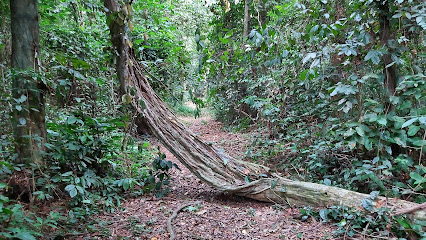
Pongara Lodge
Explore the tranquil beauty of Pongara Lodge, where luxurious comfort meets the stunning landscapes of Pointe Pongara, Gabon.
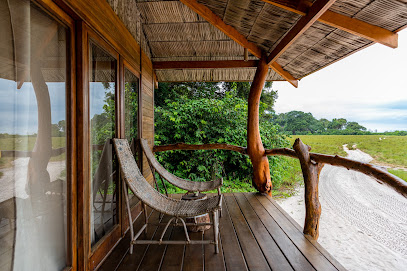
Clark
Explore Clark, a serene shrine in Libreville, where spirituality meets tranquility amidst the vibrant culture of Gabon.
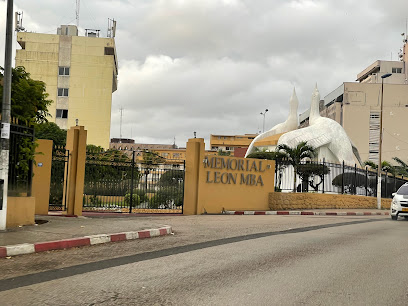
Unmissable attractions to see
Sibang Arboretum
Discover Gabon's diverse flora at Sibang Arboretum, a peaceful escape in Libreville and a center for environmental education.
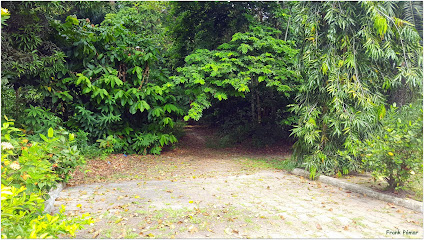
Akanda National Park
Explore Gabon's coastal gem: Akanda National Park, a haven for migratory birds, marine life, and lush mangrove ecosystems near Libreville.
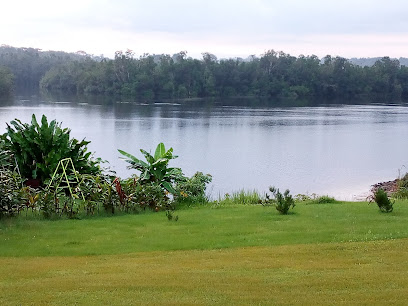
Rond Point Cité des Ailes
A tranquil green oasis in Libreville, perfect for relaxation and enjoying nature's beauty.
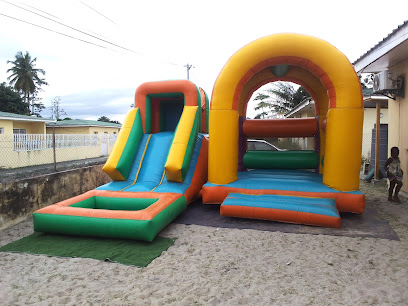
Peyrie Garden
Escape to Peyrie Garden, a serene oasis in Libreville, offering a tranquil retreat amidst lush greenery and vibrant flora.
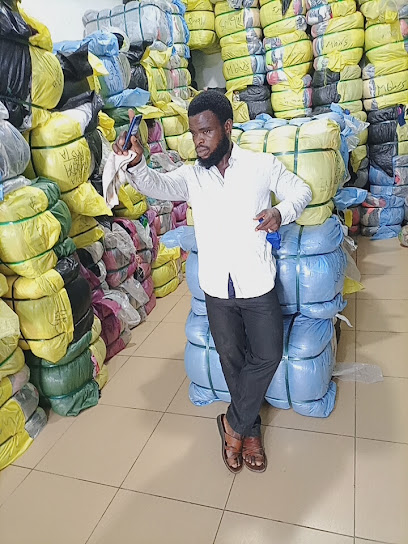
Carrefour charbonnage
Explore Carrefour Charbonnage in Libreville: Hike scenic trails, discover local flora & fauna, and escape the city bustle in this natural Gabonese haven.
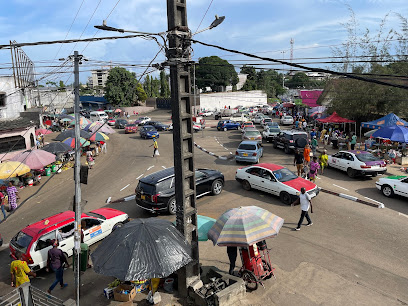
Bois des Géants
Discover the tranquility of Bois des Géants, a breathtaking nature preserve in Gabon, perfect for nature lovers and adventure seekers.
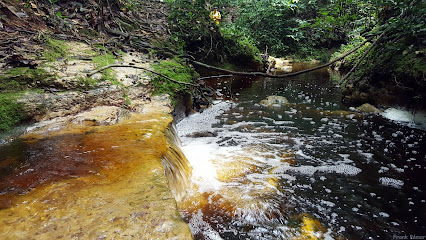
Arboretum Raponda Walker
Explore Gabon's natural heritage at Arboretum Raponda Walker: hiking trails, diverse flora, and a tranquil escape near Libreville.
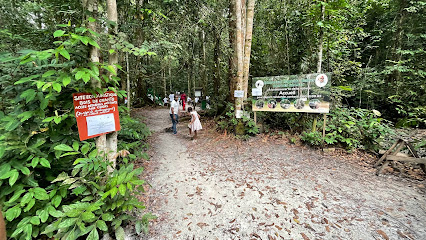
Carrefour chien méchant
Discover the tranquility of Carrefour Chien Méchant, a serene park in Libreville, perfect for relaxation and enjoying nature.
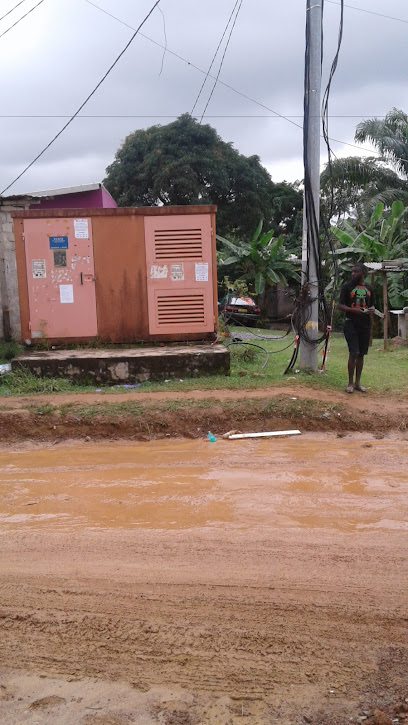
Feu du carrefour Gros Bouquet
Explore the lush trails and breathtaking views of Feu du Carrefour Gros Bouquet, a serene hiking paradise in Libreville, Gabon.
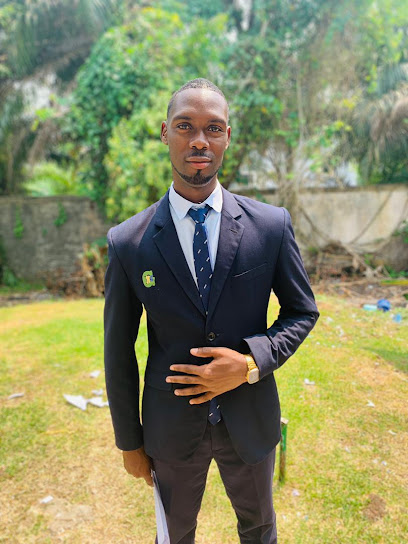
Débarcadère de Kango.
Explore the natural beauty and tranquil ambiance of Débarcadère de Kango, a scenic gem in Kango, Gabon, perfect for relaxation and cultural immersion.
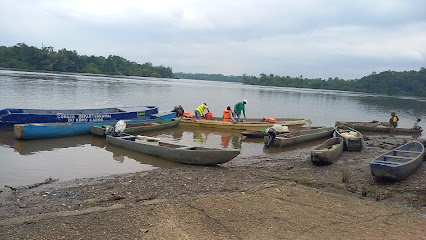
NGORY ICE CLUB
Ngory Ice Club: A lively beer hall and tourist attraction in Libreville, Gabon, perfect for enjoying local beers and vibrant nightlife.

PANNEAU LIGNE EQUATEUR
Experience the unique sensation of standing in two hemispheres at once at Gabon's Equator Sign, a must-see for geography enthusiasts and travelers!
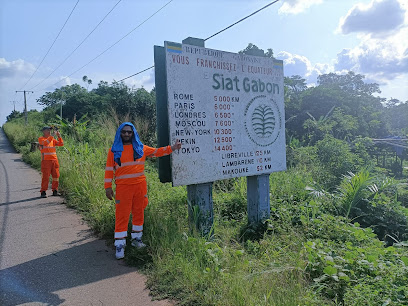
Equator Line
Experience the center of the world at the Equator Line in Foulenzem, Gabon, a unique geographical landmark and photo opportunity.

Les huit palmiers
Discover the serene beauty of Les Huit Palmiers, a tranquil oasis in Gabon, perfect for nature lovers and those seeking relaxation.
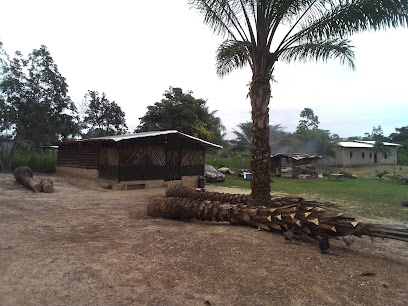
Equator west point Africa
Experience the thrill of straddling the world at the Equator's West Point in Gabon, a unique photo stop and geographical highlight.

Essential places to dine
Amigo's Restaurant
Experience authentic Gabonese cuisine at Amigo's Restaurant in Libreville - where local flavors meet warm hospitality.
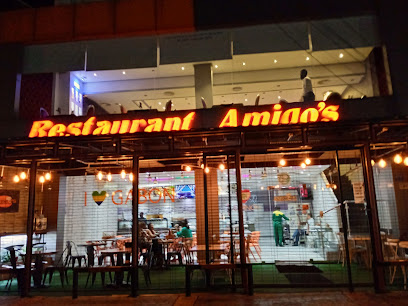
L'Odika
Experience authentic Gabonese cuisine at L'Odika in Libreville – where every dish tells a story.
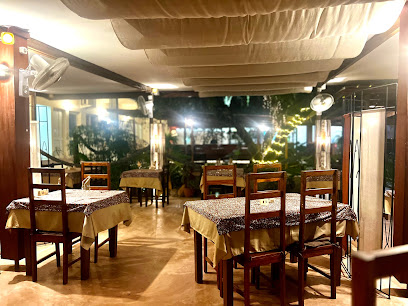
Sakura
Savor authentic Japanese cuisine at Sakura in Libreville – where every bite is a journey through Japan's rich culinary traditions.
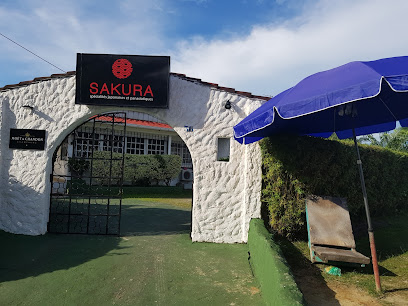
L'assiette d'or
Experience authentic Gabonese cuisine at L'assiette d'or, where every dish tells a story of flavor and tradition in the heart of Libreville.
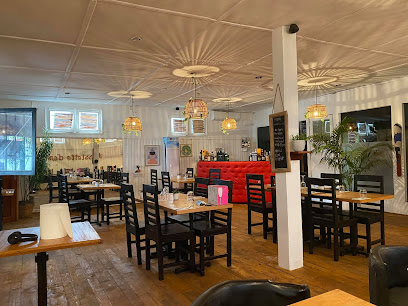
Restaurant Le Mississipi
Discover the culinary treasures of Libreville at Restaurant Le Mississipi, where local flavors meet international cuisine in an inviting atmosphere.
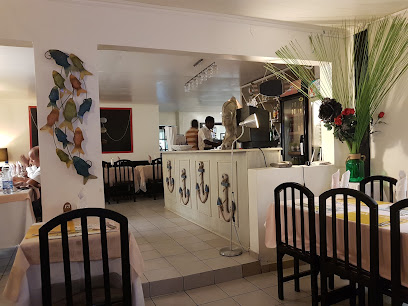
Restaurant LYNN'S
Experience the vibrant flavors of Gabon at Restaurant LYNN'S, where local cuisine meets warm hospitality in Libreville.
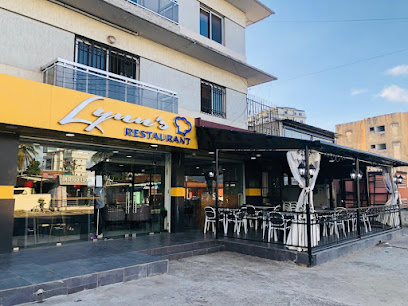
Le Topaz
Experience a delightful blend of local and international cuisine at Le Topaz in Libreville – a culinary hotspot for every traveler.
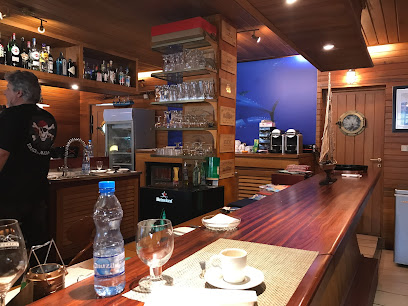
Restaurant Tsoumou
Discover Restaurant Tsoumou: A Culinary Gem Offering Authentic Gabonese Flavors in Libreville's Heart.
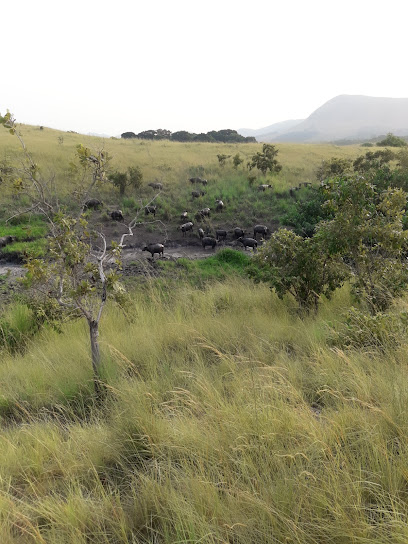
River Lodge Resort
Experience luxury and tranquility at River Lodge Resort in Point Denis - your perfect getaway in Gabon.
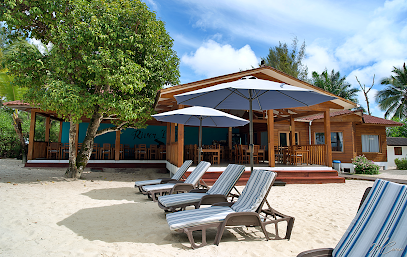
Samo Beach
Discover the flavors of Gabon at Samo Beach – where culinary delights meet stunning ocean views in Libreville.
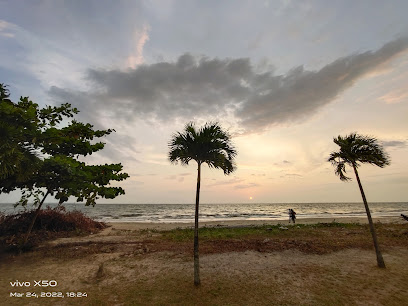
Namaste hotel & Restaurant
Discover authentic Indian flavors at Namaste Hotel & Restaurant in Libreville's serene coastal setting.
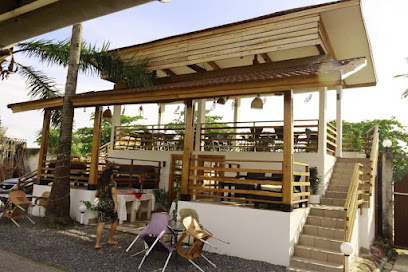
Le Palais Gourmet
Discover exquisite flavors at Le Palais Gourmet, where Gabonese cuisine meets culinary artistry in Libreville's vibrant dining scene.
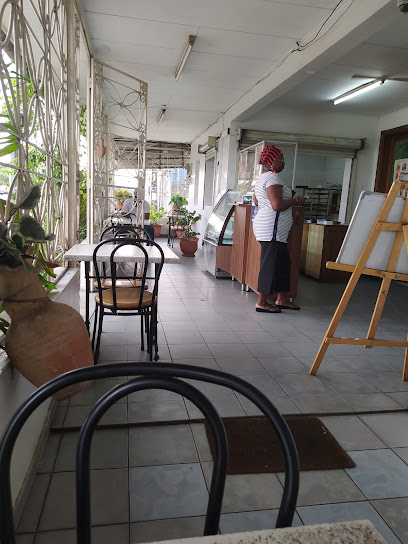
Idiora Restaurant-Bar
Discover the vibrant culinary scene at Idiora Restaurant-Bar in Libreville - where local flavors meet international cuisine.
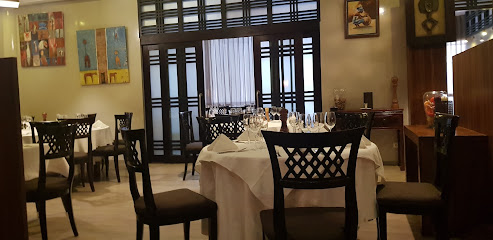
Mess Des Douanes
Experience authentic Gabonese flavors at Mess Des Douanes in Libreville - a culinary gem offering traditional dishes in a warm atmosphere.
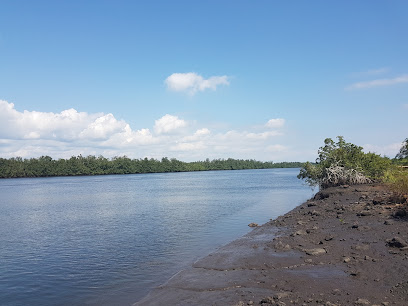
Sushi Bar
Experience authentic Japanese cuisine at Sushi Bar in Libreville - where freshness meets creativity in every bite.
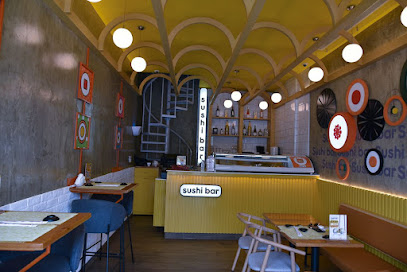
Markets, malls and hidden boutiques
ORCA Deco Gab
Explore ORCA Deco Gab in Quartier Ozoungué, Libreville - your ultimate destination for unique home goods and furniture that reflect Gabonese artistry.
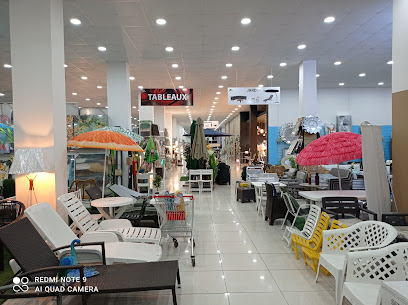
Uncle Sam
Explore the vibrant flavors of Gabon at Uncle Sam, a grocery store in Libreville offering local and international products.
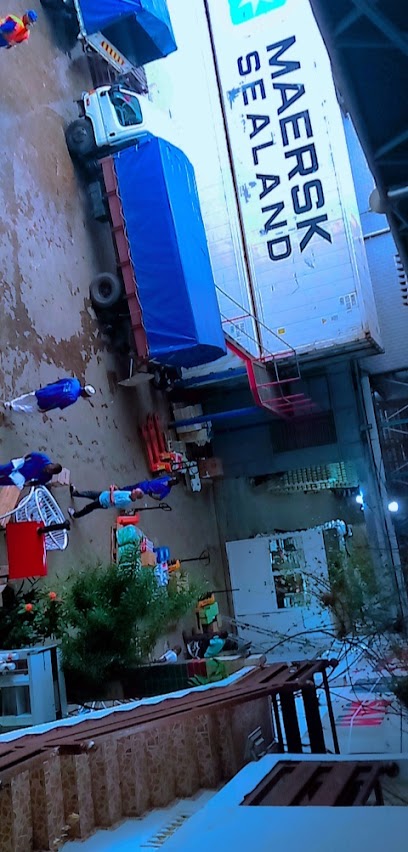
Grace'Full Gifts
Explore the charm of Gabon at Grace'Full Gifts, where unique souvenirs and local artistry come together in a delightful shopping experience.
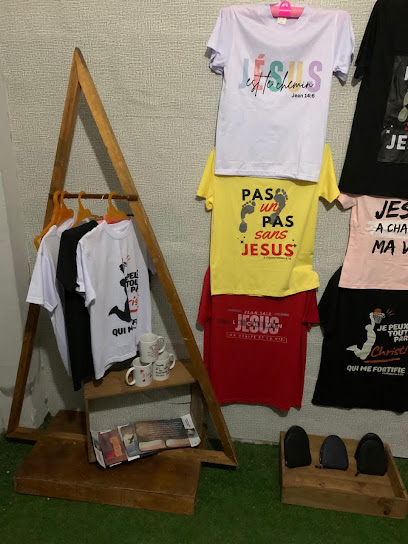
Créations la Fée
Explore the charm of Gabonese craftsmanship at Créations la Fée, a gift shop offering unique handcrafted souvenirs and local artworks.
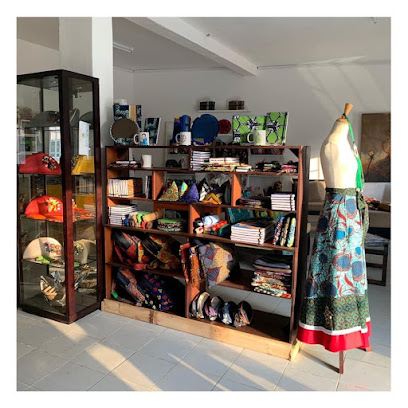
Al's Ngnouta'a Shop Owendo
Explore Al's Ngnouta'a Shop in Libreville for an exceptional selection of cigars, vaporizers, and tobacco accessories in a welcoming atmosphere.
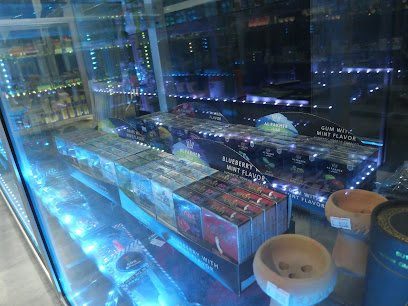
MY QUEEN ÉLÉGANCE SHOP
Explore the elegance and style of MY QUEEN ÉLÉGANCE SHOP in Libreville, where fashion accessories meet local craftsmanship in a chic setting.

Map Shop
Discover local flavors and vibrant culture at Map Shop in Libreville, a grocery store that embodies the spirit of Gabon.
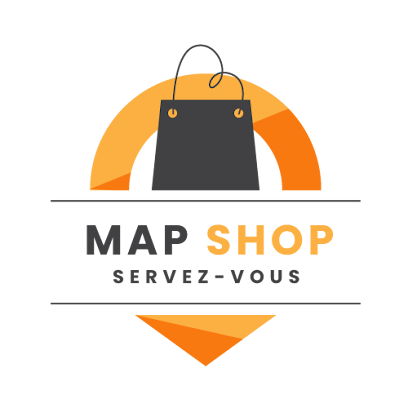
Gracefull
Explore unique fashion at Gracefull, the premier clothing store in Libreville, showcasing Gabonese style and contemporary designs.

Brunild Boutique
Explore Brunild Boutique in Libreville for unique gifts and local crafts that capture the essence of Gabon's vibrant culture.
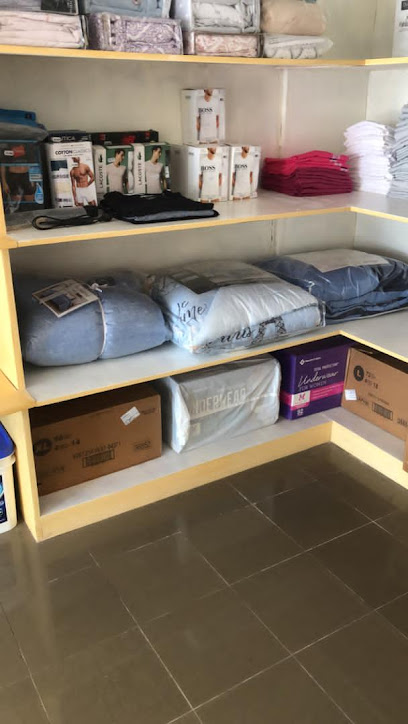
Magasin Chinois
Explore Magasin Chinois in Libreville for unique home goods and authentic Gabonese craftsmanship, perfect for souvenirs and gifts.

Moutsinga itech
Explore the vibrant consignment shop, Moutsinga Itech, in Libreville for unique finds and local treasures that tell a story.

LS&D'shop
Explore LS&D'shop in Owendo for stylish children's clothing, garden furniture, and industrial supplies, all in one family-friendly destination.
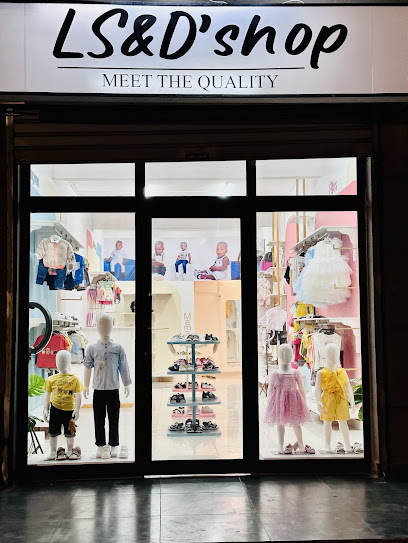
Magasin owendo calos
Explore the vibrant Magasin Owendo Calos in Libreville, where local culture comes alive through unique crafts and unforgettable shopping.

Achetez
Experience the essence of Gabon at Achetez Boutique, where local craftsmanship meets unique shopping in Razel.
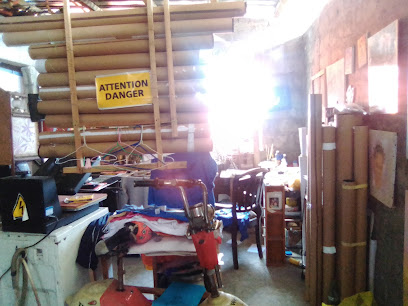
Tay shop
Discover the latest youth fashion trends at Tay Shop in Libreville, where local style meets contemporary flair for every young trendsetter.
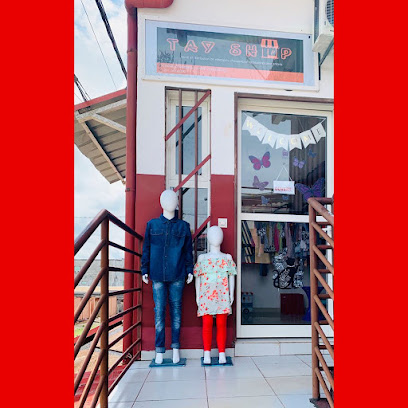
Essential bars & hidden hideouts
HYPE BAR LOUNGE
Discover the vibrant nightlife of Libreville at HYPE BAR LOUNGE, where great music and a lively atmosphere await every night.
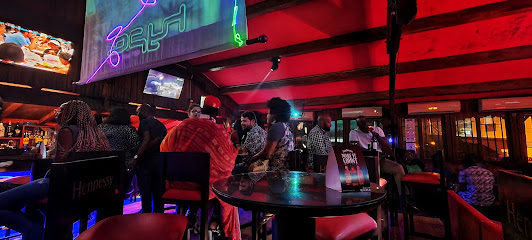
L’iroko
Experience the vibrant atmosphere of L’iroko, Libreville's premier lounge offering a delicious mix of local and international flavors in a welcoming setting.
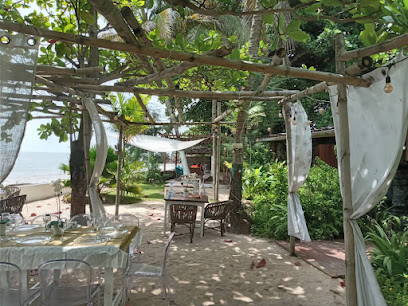
Yoka Sports Bar
Experience the vibrant atmosphere of Yoka Sports Bar in Libreville, where sports enthusiasts gather for great food, drinks, and unforgettable moments.
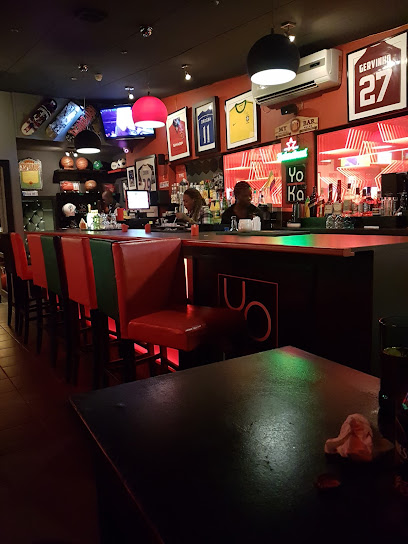
Yoka_Lounge
Discover Yoka Lounge in Libreville for a stylish atmosphere, refreshing drinks, and a perfect place to unwind after exploring Gabon’s beautiful capital.
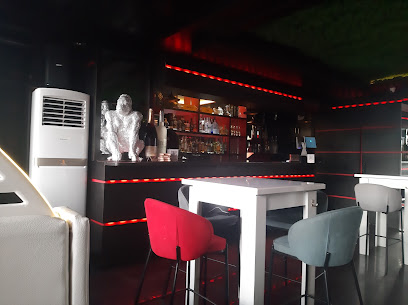
Blu Bar Libreville
Discover the vibrant nightlife at Blu Bar Libreville, where refreshing drinks and lively atmosphere await you in the heart of Gabon.
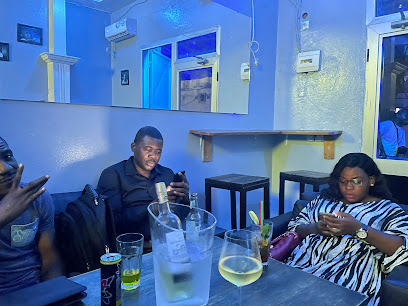
Almadies Bar Lounge Restaurant
Experience the vibrant nightlife of Libreville at Almadies Bar Lounge Restaurant, where local flavors meet a lively atmosphere.

Otchotcha Bar
Discover the vibrant nightlife at Otchotcha Bar in Libreville, where local drinks and a lively atmosphere await every visitor.
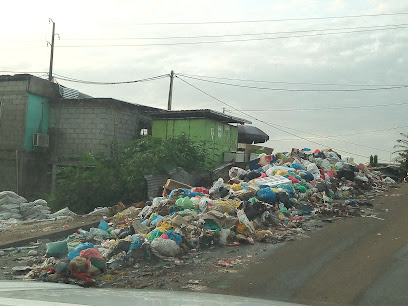
JBR Bar
Experience the vibrant nightlife at JBR Bar in Libreville's Petit Paris, where relaxation meets lively entertainment in a cozy setting.
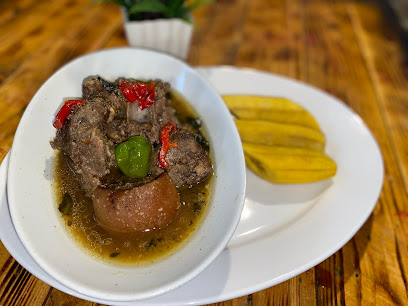
Albanaise Bar Resto
Discover the lively spirit of Libreville at Albanaise Bar Resto, where vibrant drinks and an inviting atmosphere await.
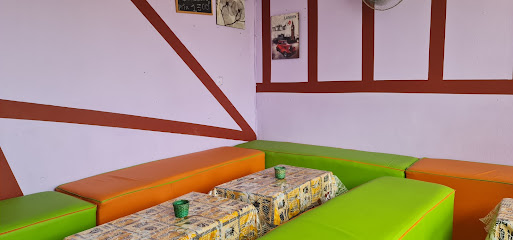
Paradys tropical
Experience the vibrant ambiance and refreshing drinks at Paradys Tropical, the ultimate bar destination in Libreville, Gabon.
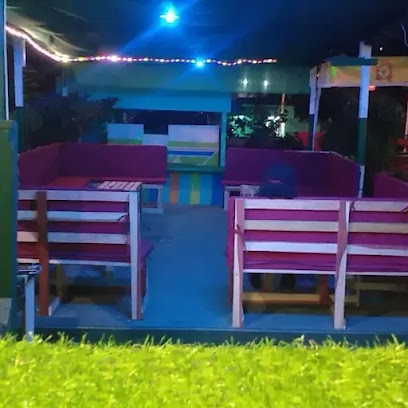
Mouila Bar chez Mamina (R10)
Discover the vibrant atmosphere and local flavors at Mouila Bar chez Mamina in Libreville, a perfect spot for relaxation and mingling.
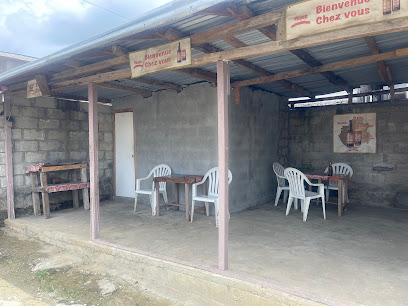
Bar NGOTA
Discover the vibrant nightlife of Libreville at Bar NGOTA, where refreshing drinks and local flavors create an unforgettable experience.

CAPSULE BAR RESTO
Discover the vibrant atmosphere and unique culinary delights at Capsule Bar Resto in Libreville, where local flavors meet modern charm.
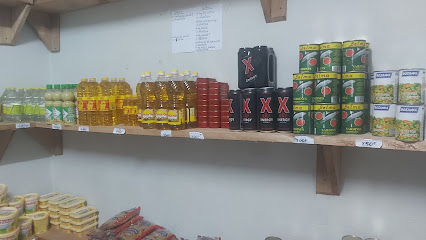
Karmelia Beach Bar
Experience the vibrant ambiance and breathtaking ocean views at Karmelia Beach Bar in Libreville, a must-visit destination for relaxation and socializing.
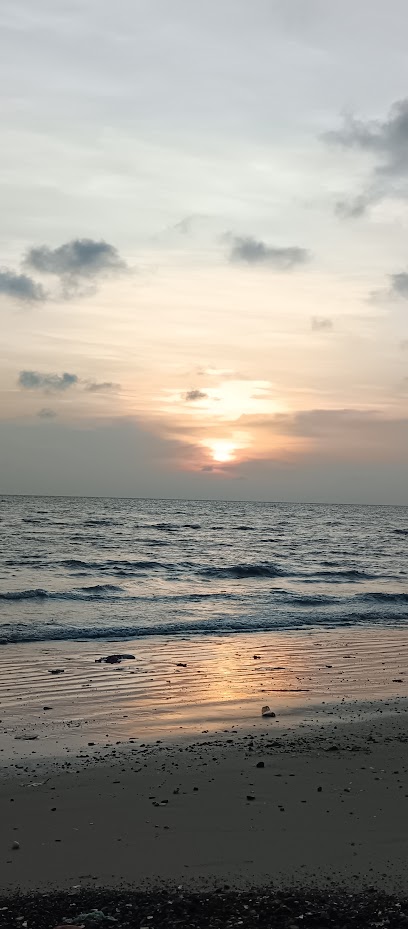
Cemac Bar
Experience the vibrant atmosphere of Cemac Bar in Libreville, a perfect spot for drinks, socializing, and enjoying local culture.
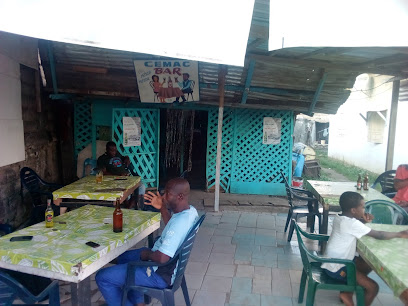
Local Phrases about Pongara National Park
-
- HelloMbolo
[em-boh-loh] - GoodbyeKwaheri
[kwah-heh-ree] - YesEwe
[eh-weh] - NoTsi
[chee] - Please/You're welcomeMakassi
[mah-kah-see] - Thank youMesi
[meh-see] - Excuse me/SorryBilo
[bee-loh] - How are you?Ozali malamu?
[oh-zah-lee mah-lah-moo] - Fine. And you?Malamu. Na yo?
[mah-lah-moo. nah yoh] - Do you speak English?Ozali kokoma l'Anglais?
[oh-zah-lee koh-koh-mah lahn-glais] - I don't understandTozali tey
[toh-zah-lee teh]
- HelloMbolo
-
- I'd like to see the menu, pleaseNakoma koyeba menu, tolle
[nah-koh-mah koh-yeh-bah meh-noo, toh-lay] - I don't eat meatTozali tey te madesu
[toh-zah-lee teh teh mah-deh-soo] - Cheers!Makassi!
[mah-kah-see] - I would like to pay, pleaseNakoma koyeba, tolle
[nah-koh-mah koh-yeh-bah, toh-lay]
- I'd like to see the menu, pleaseNakoma koyeba menu, tolle
-
- Help!Sosola!
[soh-soh-lah] - Go away!Kende!
[ken-deh] - Call the Police!Kende Police!
[ken-deh poh-lees] - Call a doctor!Kende docteur!
[ken-deh dohk-tuhr] - I'm lostNatombi
[nah-tom-bee] - I'm illNazali malade
[nah-zah-lee mah-lahd]
- Help!Sosola!
-
- I'd like to buy...Nakoma kosomba...
[nah-koh-mah koh-som-bah] - I'm just lookingNazali na mosolo
[nah-zah-lee nah moh-soh-loh] - How much is it?Eza combien?
[eh-zah kohm-byen] - That's too expensiveEza moko cher
[eh-zah moh-koh shair] - Can you lower the price?Ozali kokoma kobeta?
[oh-zah-lee koh-koh-mah koh-beh-tah]
- I'd like to buy...Nakoma kosomba...
-
- What time is it?Eza mingi?
[eh-zah meen-jee] - It's one o'clockEza mokele moko
[eh-zah moh-keh-leh moh-koh] - Half past (10)Mokele kati
[moh-keh-leh kah-tee] - MorningMokandja
[moh-kahn-jah] - AfternoonMokandja mwa
[moh-kahn-jah mwah] - EveningMokandja bwam
[moh-kahn-jah bwahm] - YesterdayMokolo
[moh-koh-loh] - TodayMokolo
[moh-koh-loh] - TomorrowMokolo
[moh-koh-loh] - 1Mbota
[em-boh-tah] - 2Mibale
[mee-bah-leh] - 3Mitatu
[mee-tah-too] - 4Mine
[mee-neh] - 5Mitano
[mee-tah-noh] - 6Misanu
[mee-sah-noo] - 7Mitete
[mee-teh-teh] - 8Miwalungu
[mee-wah-loon-goo] - 9Mitisa
[mee-tee-sah] - 10Mipulu
[mee-poo-loo]
- What time is it?Eza mingi?
-
- Where's a/the...?Yayi na...
[yah-yee nah] - What's the address?Yayi lokuta?
[yah-yee loh-koo-tah] - Can you show me (on the map)?Ozali kokoma kobundaki (na carte)?
[oh-zah-lee koh-koh-mah koh-boon-dah-kee (nah kahrt)] - When's the next (bus)?Nde esali bus ya moko?
[ndeh eh-sah-lee boos yah moh-koh] - A ticket (to ....)Mokanda (makolo ...)
[moh-kahn-dah (mah-koh-loh)]
- Where's a/the...?Yayi na...
History of Pongara National Park
-
Long before the establishment of Pongara National Park, the region was inhabited by various ethnic groups, including the Myènè people. These early inhabitants thrived in the lush environment, utilizing the abundant resources of the land and sea. Archaeological sites within the park reveal remnants of ancient settlements and artifacts, shedding light on the rich cultural history of the area.
-
During the late 19th and early 20th centuries, European colonial powers, particularly the French, explored and mapped the region that would eventually become Pongara National Park. The area was of strategic importance due to its proximity to the Atlantic Ocean and the estuary of the Komo River. The colonial era brought significant changes, including the introduction of new flora and fauna, as well as infrastructural developments.
-
Pongara National Park was officially established in 2002 as part of Gabon's ambitious plan to protect its rich biodiversity and promote eco-tourism. The park spans over 870 square kilometers and includes a diverse range of ecosystems, from mangrove forests and savannas to pristine beaches and coastal lagoons. The creation of the park marked a significant milestone in Gabon's conservation efforts and underscored the country’s commitment to preserving its natural heritage.
-
Pongara National Park is not only a haven for wildlife but also a place of deep cultural significance. Local communities, including the Myènè and the Fang, maintain their traditional ways of life, including fishing, hunting, and gathering. The park is home to several sacred sites and traditional ceremonies that are integral to the cultural identity of the indigenous people. These traditions are passed down through generations and play a crucial role in the community’s relationship with the natural environment.
-
Pongara National Park is renowned for its incredible biodiversity, hosting a variety of species such as elephants, buffaloes, antelopes, and numerous bird species. The park is also a critical nesting site for endangered sea turtles. Conservation efforts in the park are focused on protecting these species and their habitats through anti-poaching initiatives, scientific research, and community engagement programs. These efforts have made Pongara a model for conservation in the region.
-
Today, Pongara National Park is a popular destination for eco-tourists and nature enthusiasts. Visitors can explore the park's diverse landscapes through guided tours, boat trips, and hiking trails. The park's management emphasizes sustainable tourism practices, ensuring that tourism activities have minimal impact on the environment. Educational programs and visitor centers provide insights into the park’s ecology and the importance of conservation, fostering a deeper appreciation for Gabon's natural and cultural heritage.
Pongara National Park Essentials
-
Pongara National Park is located in western Gabon, near the capital city of Libreville. The nearest international airport is Libreville Leon M'ba International Airport. From the airport, you can take a taxi to the Michel Marine in Libreville, where you can catch a boat to Pongara. The boat ride typically takes about 45 minutes. Alternatively, you can arrange for a private boat transfer with local tour operators.
-
Within Pongara National Park, the primary mode of transportation is by foot or boat. The park's trails are well-marked for hiking, and guided tours are available for those who prefer a structured experience. If you wish to explore other parts of Gabon, car rentals and taxis are available in Libreville. Keep in mind that road conditions can be variable, so a 4x4 vehicle is recommended for longer journeys.
-
The official currency in Gabon is the Central African CFA Franc (XAF). Credit cards are accepted in some hotels and restaurants in Libreville, but it is advisable to carry cash, especially when traveling to remote areas like Pongara National Park. ATMs are available in Libreville, so withdraw sufficient cash before heading to the park. Note that foreign currency exchange services are limited outside the capital.
-
Pongara National Park is generally a safe destination for tourists. However, it is advisable to take standard precautions. Avoid walking alone at night in Libreville and be cautious with your belongings in crowded areas. While the park itself has a low crime rate, be aware of your surroundings and follow the guidance of park rangers and local guides. Libreville has some neighborhoods with higher crime rates, such as Rio and Nkembo, so it's best to avoid these areas.
-
In case of an emergency, dial 177 for immediate assistance in Gabon. It is highly recommended to have travel insurance that covers medical emergencies. The nearest medical facilities are in Libreville, so for any serious health issues, you may need to return to the city. For minor health issues, carry a basic first aid kit and any necessary medications. Local guides can assist in contacting emergency services if needed.
-
Fashion: Do wear lightweight, breathable clothing suitable for tropical climates. Avoid wearing overly revealing clothing. Religion: Do respect local customs and traditions. While Gabon is a secular country, showing respect for religious practices is appreciated. Public Transport: Do be respectful and patient when using public transportation. Avoid loud conversations and keep the area clean. Greetings: Do greet people with a handshake or a polite nod. It is customary to greet elders first. Eating & Drinking: Do try local dishes and accept food offerings graciously. Don't refuse hospitality, as it is considered impolite.
-
To experience Pongara National Park like a local, consider hiring a local guide who can provide insights into the park's flora, fauna, and history. Visit local villages to learn about traditional Gabonese culture and customs. Participate in eco-tourism activities such as bird watching and turtle conservation programs. For a unique experience, take a night tour to observe nocturnal wildlife. Don't miss the opportunity to enjoy fresh seafood at local eateries near the park's entrance.
Nearby Cities to Pongara National Park
-
Things To Do in Lambaréné
-
Things To Do in Mbini
-
Things To Do in Santo Antonio
-
Things To Do in Bitam
-
Things To Do in Kribi
-
Things To Do in Sao Tome City
-
Things To Do in Ribeira Afonso
-
Things To Do in Trindade
-
Things To Do in Angolares
-
Things To Do in Guadalupe
-
Things To Do in Neves
-
Things To Do in Santa Catarina
-
Things To Do in Ebolowa
-
Things To Do in Luba
-
Things To Do in Edea




